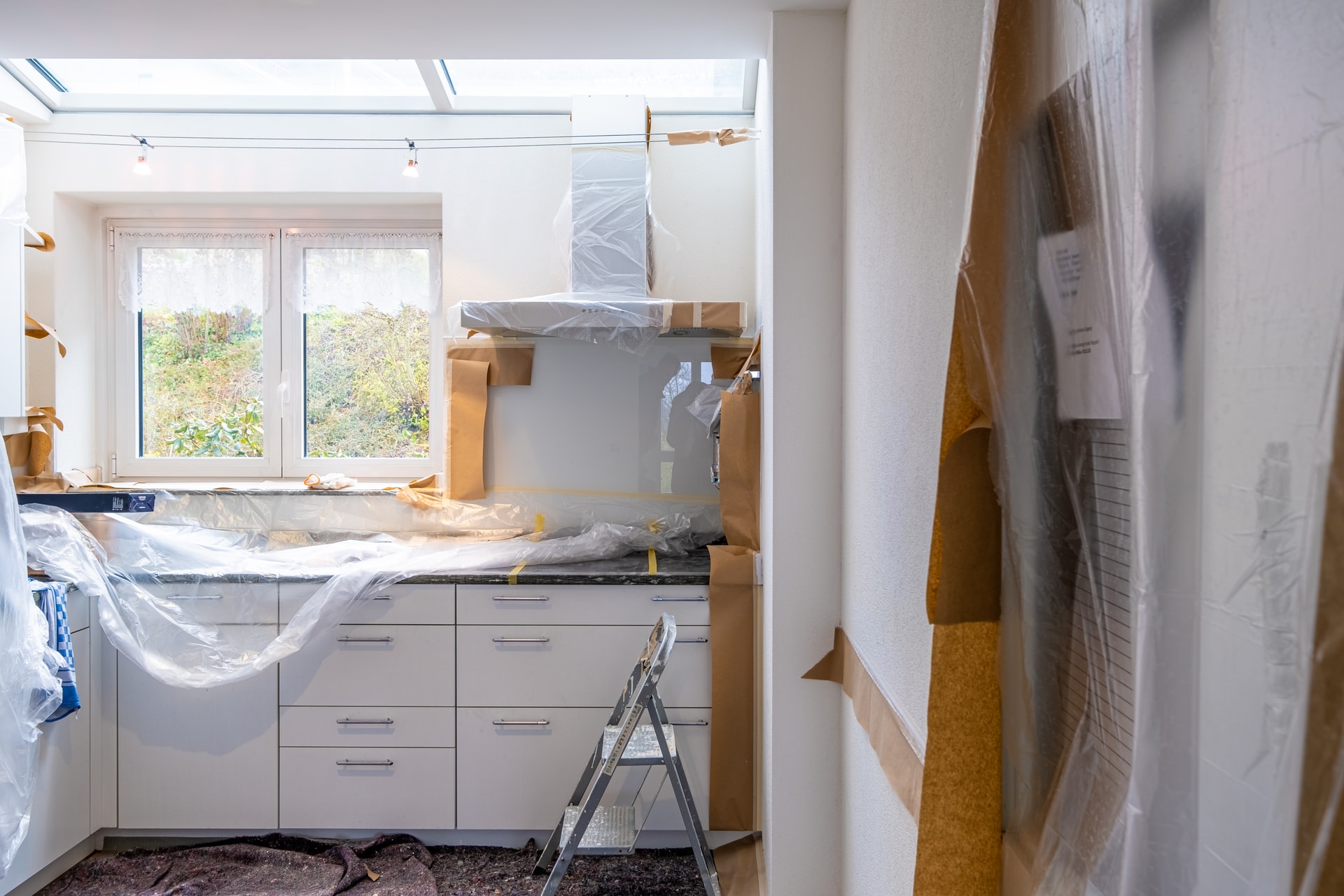Flipping houses isn’t for the weak of heart. You might find yourself in a renovation disaster before you realize what’s happened. Or you might not have the time and skills to do everything yourself. That’s where house-flipping contractors come in.
But how should you go about finding a house-flipping contractor? This article will tell you how.
Network
First, you should know that many general contractors (or friends of those contractors) have connections with people who can work for you. Who are you already connected with who might be able to refer you to contractors? Think real estate agents, investing group, home inspectors, etc.
Anyone you’re friends with that also flips houses or invests in real estate probably knows at least one person who can provide these services for you.
Additionally, friends or family members who have had their house worked on may know someone.
However, just because someone gives you a name doesn’t mean they will work out for you. So follow the steps detailed in the later sections of this article to weed out potential problems.
Search Online
Great starting points are sites like Yelp, Craigslist, Facebook, HomeAdvisor, Thumbtack, or Angi’s List to find contractors based on reviews. However, remember that reviews are often biased or incentivized in some way, so don’t be charmed too quickly by glowing reviews.
However, checking out contractors with generally positive reviews is definitely the right starting point.
Also, Home Depot offers a contractor location service. While these contractors tend to be pricey, they can get the job done.
Ask Around
For a more up-front approach, try directly asking people in the industry. The hardware store employee you’re buying supplies from might lay flooring on the side. Or a construction worker might be able to give you contact info for a great concrete guy (right before his boss kicks you off of the site).
Hardware store employees can actually be a great point of contact as they likely see contractors in the area on a regular basis. However, you’ll have to build some trust and rapport first. Don’t treat them like a phone book or else you’ll likely come up empty handed.
The Review Process
Once you’ve found a potential contractor, ask them to provide a minimum of two references for you to contact. If they will let you, pick their brain about specific projects you have in mind and see if they are knowledgable in the area and if they have subcontractors for special projects.
Get A Bid
Once you have your choices in mind, ask them to provide you with a bid. Make sure you compare numbers from the house flippers and not with other specialists such as painters and roofers, as those numbers vary significantly.
To test their reliability, have them email you the bid or call you when they complete it. If the contractor never follows up, they’re probably not a good match. Doing this is also an efficient way to see how quickly they respond to orders.
Also, beware of unrealistically low bids, as those typically mean a low-quality job. You’ll end up paying more in the long run.
Don’t Hire Uninsured
Make sure they have a state contractor’s license and worker’s compensation insurance before you hire them. A big red flag that you’re working with an amateur is if they don’t have insurance to back them up.
Never hire anyone with a history of unfiled claims, as this is not something you should take lightly.
Interview
Before you make any final decisions, schedule interviews with all your potential candidates; check whether they show up on time and demonstrate an understanding of what you’re hiring them to do.
Discuss the project, materials needed, pay date, the budget, time frame of the project, and any other questions your interviewee may have.
Alternatively, you can send emails asking for specific questions to be answered. Then, schedule an in-person meetup to discuss other important details.
Schedule A Phone Interview
After the initial interview, if they give you a resume and the contractor seems like a match, communicate over the phone and ask specific questions about your project.
Also, ask about their pricing, how many people they employ, how many houses they flip per month, how many clients they have, and how long it typically takes to finish a job. Pro tip: It’s best to get critical details like pricing and timeframe in the form of an email so that if a dispute arises in the future, you aren’t relying on memory.
Bonus: Contract Signing
It can be helpful for both parties to obtain a signed contract from before working on the project. You can request a template from fellow investors or make one yourself and have an attorney review it.
While legal disputes are a last resort, this can provide you some legal recourse should the project become grossly mishandled.
You can also outline specific details so that no one is left in the dark about what to do, for example, what the work entails, who’s responsible for providing equipment, the terms of payment, etc.
If you’re unsure about the entire scope of the project, consult the contractor and work together to lay out the details.
However, some contractors will already have a contract for you to sign. Have an attorney review it and check it for any inconsistencies before signing.
Start Small
Before assigning a large-scale job to your contractor, try testing them out on a small job to see if they’re capable of what you want. That can potentially save you headaches later.
When you are ready to assign work, however, no matter how large or small the job is, always visit the property with the contractor, which is crucial to ensure that work gets completed, and completed on time.
Keep In Touch
It can be easy to lose contact with a contractor once you get the ball rolling if you’re preoccupied with multiple other projects. However, house-flipping jobs can become disastrous when you don’t follow up with your contractor.
Make sure to keep your eye on them so that they follow through with the contract. Once contractors become accustomed to working for someone, they start charging higher rates and completing work more slowly than before.
If you don’t keep at them, your contractor will eventually grow lazy and stop doing work completely, regardless of how long they’ve been working with you or how good their work is.
Tips For Keeping in Touch
One way to ensure your contractors are performing is to communicate with them. Check in on them regularly and ask them for updates.
If you don’t keep an open line of communication with your contractor, he or she may do work on the house that you didn’t expect, causing a potential conflict. If your contractor hasn’t been in touch with you for a while, it’s time to check in and get an update.
Also, don’t neglect to check the job site. As mentioned earlier, visiting the property, especially with the contractor, is a fantastic way to ensure that jobs get done.
Additionally, requesting a written bid, not over the phone or through text, helps you keep an idea of the project flow. Also, request a written estimation for job completion time, which will help give your contractor a sense of obligation to finish what they start.
Doing this eliminates confusion over what to repair and keeps the contractor truthful about the charges. However, remember that a written bid isn’t a guarantee that everything will get done correctly. The only way to administer it is to sue the contractor.
Another great tip is never to prepay for work. While some contractors require a downpayment at the start of their projects, you should never pay the full amount for work before it’s complete. A rule of thumb is to pay no more than twenty-five percent of the total bill before work starts.
You can also offer to help them choose supplies for the job. This can also ensure that they will flip the house the way you want.
Conclusion
Although house-flipping is a daunting task, a contractor can make it seem less of a burden. With the right help in place, you’ll be able to enjoy this income-driven side business and maybe become a house flipper full time.
Make smart decisions during the hiring process, and your dream of flipping houses will become a reality.


